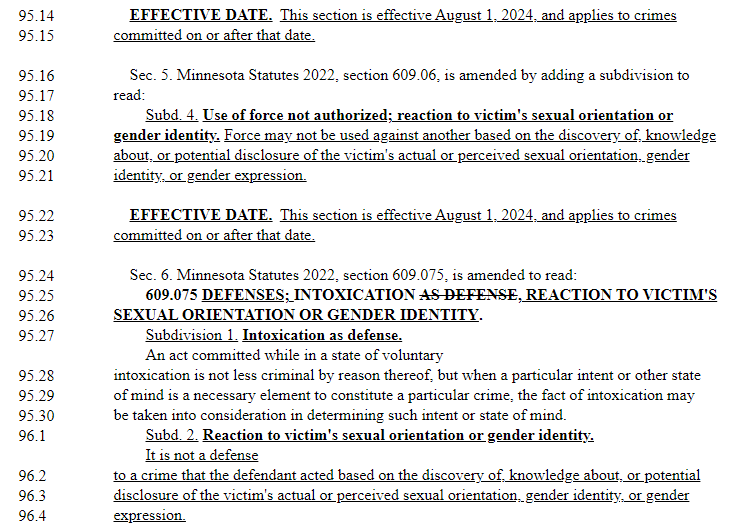Minnesota
DA: Teen charged in fatal anti-LGBTQ Minneapolis mass shooting
The charged individual was 17 years old at the time of the shooting, in which one person was killed & seven others were injured by gunfire
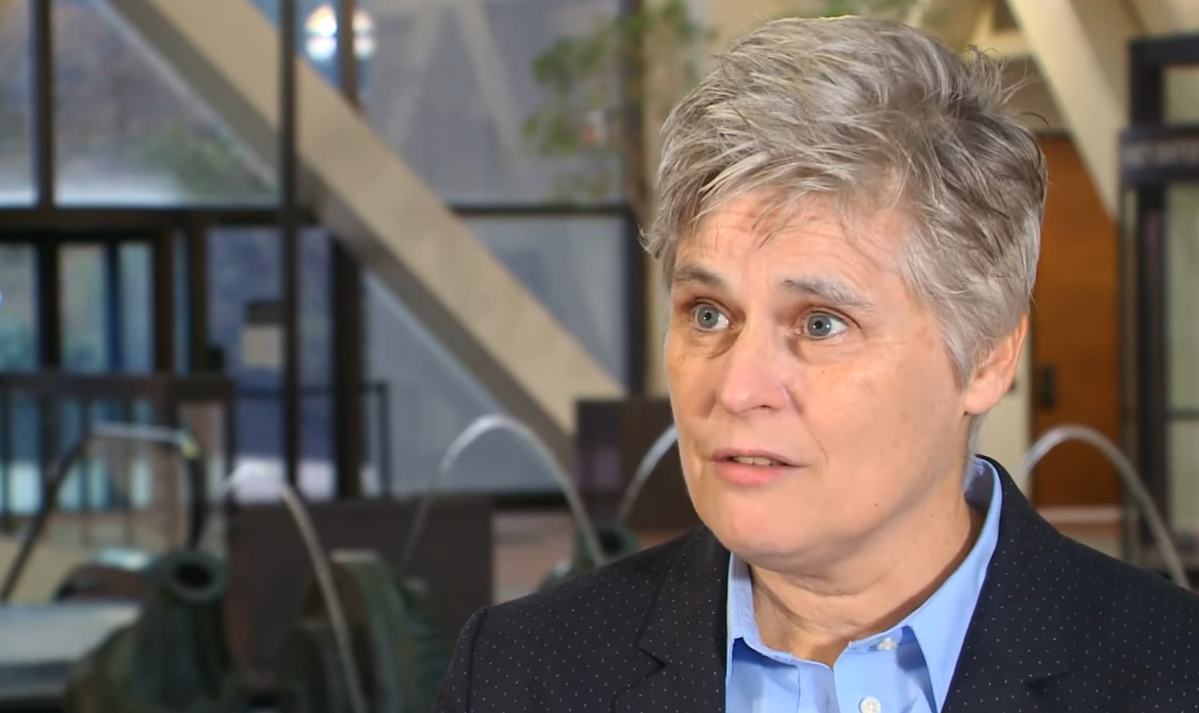
MINNEAPOLIS, Minn. – Hennepin County Attorney Mary Moriarty today announced that her office has charged a now-18 year old with murder in the August 2023 mass shooting at a Minneapolis backyard concert venue known as “Nudieland” that was attended by many members of the LGBTQ+ community.
The charged individual was 17 years old at the time of the shooting, in which one person was killed and at least seven others were injured by gunfire. The document charging Dominic James Burris and another man says the shooting was motivated by bias against the victims’ gender, sexual orientation, gender identity and gender expression.
The office charged the individual by sealed warrant on Friday, April 12. The complaint was sealed because the individual was not in custody at the time of charging. Police arrested the individual, currently age 18, last night, and he made his first appearance in juvenile court today. The Hennepin County Attorney’s Office will decide whether to pursue adult certification of the case or keep it in juvenile court after certification studies are completed.
“Gun violence will not be tolerated in our communities,” Hennepin County Attorney Mary Moriarty said. “This shooting, at what should have been a joyous event, rocked our LBGTQIA+ community, and increased fear among a community that is too often already under attack. We are committed to holding those who caused this harm accountable, and to offering, as we already have, our office’s resources to those who have been impacted by this senseless violence.”
The charges revealed today come after an investigation by the Minneapolis Police Department and the Hennepin County Attorney’s Office. The two offices collaborated since this tragic shooting to review evidence and prepare the cases for charging.
“The identification of those believed to be responsible for the terrible events of August 11th is the culmination of the careful, steadfast, and meticulous collaboration between MPD investigators, forensic scientists, federal partners, and prosecutors,” said Minneapolis Police Chief Brian O’Hara. “The violence inflicted in this mass shooting angers me, and I am moved to compassion for those who were impacted by this terrible murder and attempted murders. I am proud of the dedicated members of the MPD who continue to serve above and beyond for the victims of crime.”
The allegations detailed in the criminal complaint include:
Two males interacted with multiple people at the concert in the minutes before the shooting. Witnesses stated that the two males approached them and then made insensitive comments during an interaction characterized as “hostile” where the two men brandished firearms.
Other witnesses reported they overheard the respondents utter derogatory epithets about the sexual orientation of concert attendees.
Both suspects remained at the concert following the interaction before leaving together.
According to witnesses, the shooting began less than a minute after they left, coming from a yard next door. Both the location and number of bullet casings corroborated descriptions of where the victims and witnesses observed the suspects.
Upon arriving at the scene, officers encountered at least seven victims who had suffered gunshot wounds. One victim suffered a gunshot wound to his back and died shortly after law enforcement arrived.
Forensic examiners developed a DNA profile from a cigarette butt at the scene, which matched a known DNA profile of one of the suspects.
Investigators located surveillance videos from around the time and location of the shooting, confirming that two males matching the physical appearance of the suspects walked toward the direction of the party shortly before the shooting took place. A witness later identified the second suspect in the surveillance video.
Minnesota
Reports say woman killed by ICE was part of LGBTQ community
Renee Nicole Good shot in Minneapolis on Wednesday

A U.S. Immigration and Customs Enforcement agent shot and killed a woman in Minneapolis as she attempted to drive away from law enforcement during a protest on Wednesday.
The Star Tribune newspaper identified the victim as Renee Nicole Good, 37, a Minneapolis resident who lived blocks from where she was shot in the Central neighborhood, according to reports. Donna Ganger, Good’s mother, told the Star Tribune that her daughter lived in the Twin Cities with her wife.
Multiple videos of the shooting have gone viral on social media, showing various angles of the fatal incident — including footage that shows Good getting into her car and attempting to drive away from law enforcement officers, who had their weapons drawn.
In the videos, ICE agents can be heard telling Good to “get out of the fucking car” as they attempted to arrest her. Good, who press reports say was married to a woman, ended up crashing her car into an electric pole and other vehicles. She was later transported from the scene of the shooting and died at the hospital.
President Donald Trump defended the ICE agent on Truth Social, saying the officer was “viciously” run over — a claim that coincides with Homeland Security Secretary Kristi Noem’s assessment of the situation. Noem, a South Dakota Republican, insisted the officer “fired defensive shots” at Good after she attempted to run over law enforcement agents “in an attempt to kill them — an act of domestic terrorism.”
Multiple state and local officials disputed claims that the shooting was carried out in self-defense at the same time Noem was making those assertions.
An Instagram account that appears to belong to Good describes her as a “poet and writer and wife and mom and shitty guitar strummer from Colorado; experiencing Minneapolis, MN,” accompanied by a rainbow flag emoji.
A video posted to X after the shooting shows a woman, reportedly her wife, sitting on the ground, crying and saying, “They killed my wife. I don’t know what to do.”
“We’ve dreaded this moment since the early stages of this ICE presence in Minneapolis,” Mayor Jacob Frey said during a Wednesday press conference. “Having seen the video myself, I want to tell everybody directly that [the DHS’s claim of self-defense] is bullshit. This was an agent recklessly using power that resulted in somebody dying, getting killed.”
“I have a message for ICE. To ICE, get the fuck out of Minneapolis,” Frey continued. “We do not want you here. Your stated reason for being in this city is to create some kind of safety, and you are doing exactly the opposite. People are being hurt. Families are being ripped apart. Long-term Minneapolis residents that have contributed so greatly to our city, to our culture, to our economy are being terrorized, and now somebody is dead. That’s on you, and it’s also on you to leave.”
Across the Capitol, members of the House and the Senate condemned the actions of the officer.
“There’s no indication she’s a protester, there’s nothing that at least you can see on the video, and therefore nothing that the officers on the ground could see that identify her as someone who’s set out to try to do harm to an ICE officer,” U.S. Sen. Elizabeth Warren (D-Mass.) said Wednesday night on MS NOW’s “The Weeknight.”
“There is no evidence that has been presented to justify this killing,” House Minority Leader Hakeem Jeffries (D-N.Y.) said in a statement on his website. “The masked ICE agent who pulled the trigger should be criminally investigated to the full extent of the law for acting with depraved indifference to human life.”
“ICE just killed someone in Minneapolis,” U.S. Rep. Robert Garcia (D-Calif.) the highest-ranking Democrat on the House Oversight Committee, posted on X. “This administration’s violence against communities across our country is horrific and dangerous. Oversight Democrats are demanding answers on what happened today. We need an investigation immediately.”
In a statement to the Advocate, Human Rights Campaign President Kelley Robinson wrote, “Today, a woman was senselessly killed in Minneapolis during an ICE action — a brutal reminder that this agency and the Trump regime put every community at risk, spreading fear instead of safety. Reports that she may have been part of the LGBTQ+ community underscore how often the most vulnerable pay the highest price.”
National LGBTQ Task Force President Kierra Johnson also responded to Good’s death.
“We recognize and mourn the loss of Renee Nicole Good and extend our condolences to her family, loved ones, and community,” said Johnson in a statement. “This loss of life was preventable and reprehensible, particularly coming at the hands of federal agents.”
Minnesota
‘My teeth exploded’ says trans teen describing assault to media
Cobalt Sovereign said she was assaulted by another student while leaving a restroom at a Minnetonka area high school on May 30, 2024
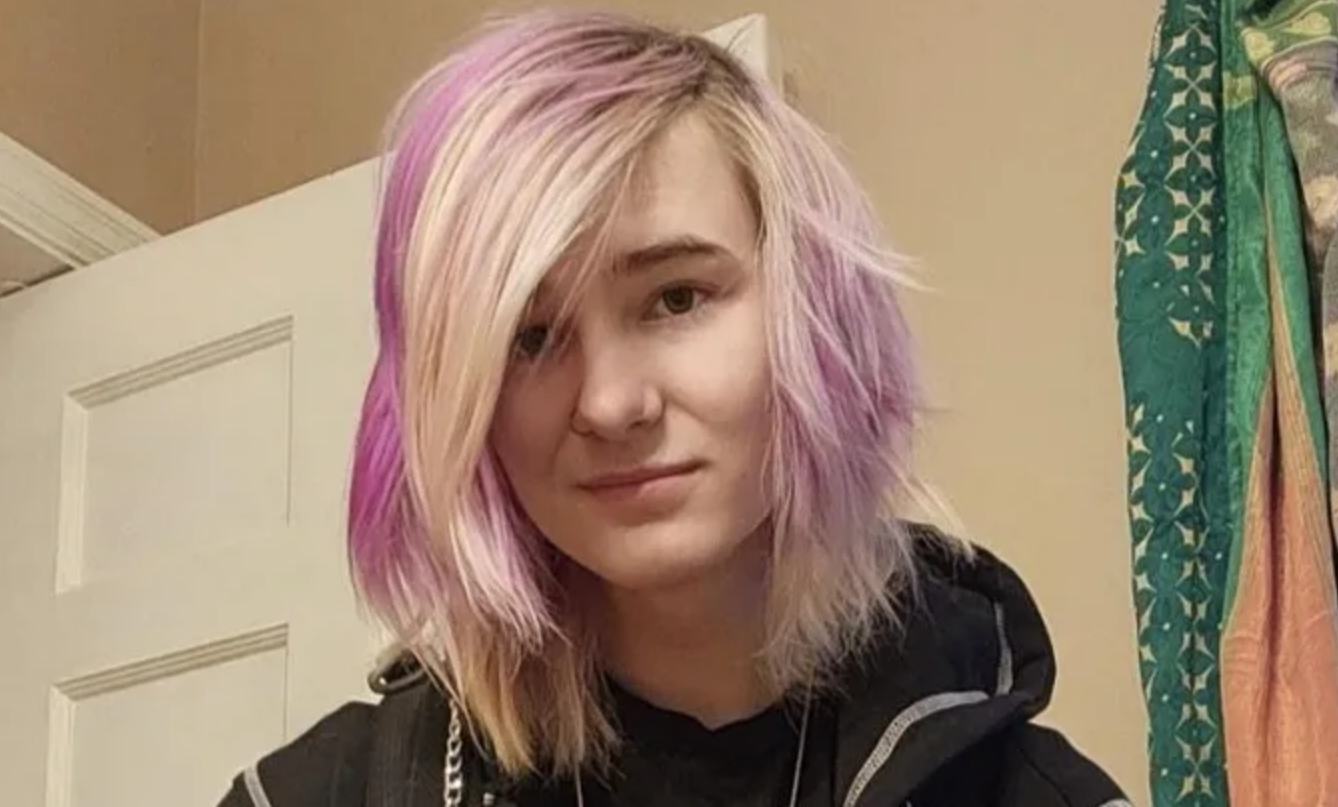
MINNETONKA, Minn. — A 17-year-old transgender female student in Minnetonka, Minnesota had to go to the bathroom at Hopkins High School. What happened next left her in hospital with a broken jaw and badly damaged teeth. Minnetonka police are now investigating the attack as a possible hate crime.
“I was attempting to use the restroom and actually didn’t get to until an hour later at the hospital,” Cobalt Sovereign told Minneapolis NBC affiliate KARE 11 News.
After being taken to the hospital by her parents, Sovereign was then transported by ambulance to a Twin Cities level one trauma center. There, she underwent a multi-hour surgery to repair her jaw with three titanium plates. In a few months, once her jaw has fully healed, she’ll need additional reconstructive dental work. In the meantime, she has a traumatic brain injury, which will prevent her from returning to school at this time.
Describing the attacker and the unidentified student responsible Sovereign told KARE 11 News:
“In the bathroom, he had looked over the stall directly where I was attempting to use the bathroom, and that is where he initially called me a faggot in the first place,” Sovereign described. The student attacker allegedly called her that slur repeated it several times.
“I left the bathroom and got it in myself to confront the kid, verbally,” she said. “He had no reason to have anything against me, I’ve never talked to him, never done anything negative to him. And I was insulted and then eventually hit in the jaw.”
According to Sovereign’s mother, video shown to them by Minnetonka police investigators verified her daughter’s account of the criminal assault.
“I saw just what she described, she comes out of the bathroom, and there’s these three kids,” Ashley Sovereign said. “They are clearly getting to her and around her, and then one of them hit her while she’s just standing there, hit her very hard.”
“I was hit in the jaw and at the time one of my teeth exploded, pieces in my mouth,” Cobalt Sovereign said recounting what had transpired. “My jaw was broken in two places … molar, just shattered.”
KARE reported that there were more than just physical injuries. “Mentally I did have a few nightmares after the events,” Sovereign noted adding that prior to the attack, she wasn’t necessarily scared to use the bathroom.
“Less scared, more just incredibly uncomfortable,” she said. “It makes me incredibly uncomfortable to be in the men’s bathroom.”
On Wednesday hundreds of students and supporters gathered outside Hopkins High School to show support for Cobalt.
Hopkins High School officials said the student accused of hitting Sovereign faced immediate discipline. School policy is to suspend a student in a fight. Wednesday was the final day of classes for students for the school year.
A GoFundMe has been set up to help the family with her medical expenses.
Related:
Minnesota
Minnesota bans Gay & Trans Panic Defense
“Gay and trans panic defenses are based on irrational fears and prejudice and they imply that violence against LGBTQ+ people is acceptable”
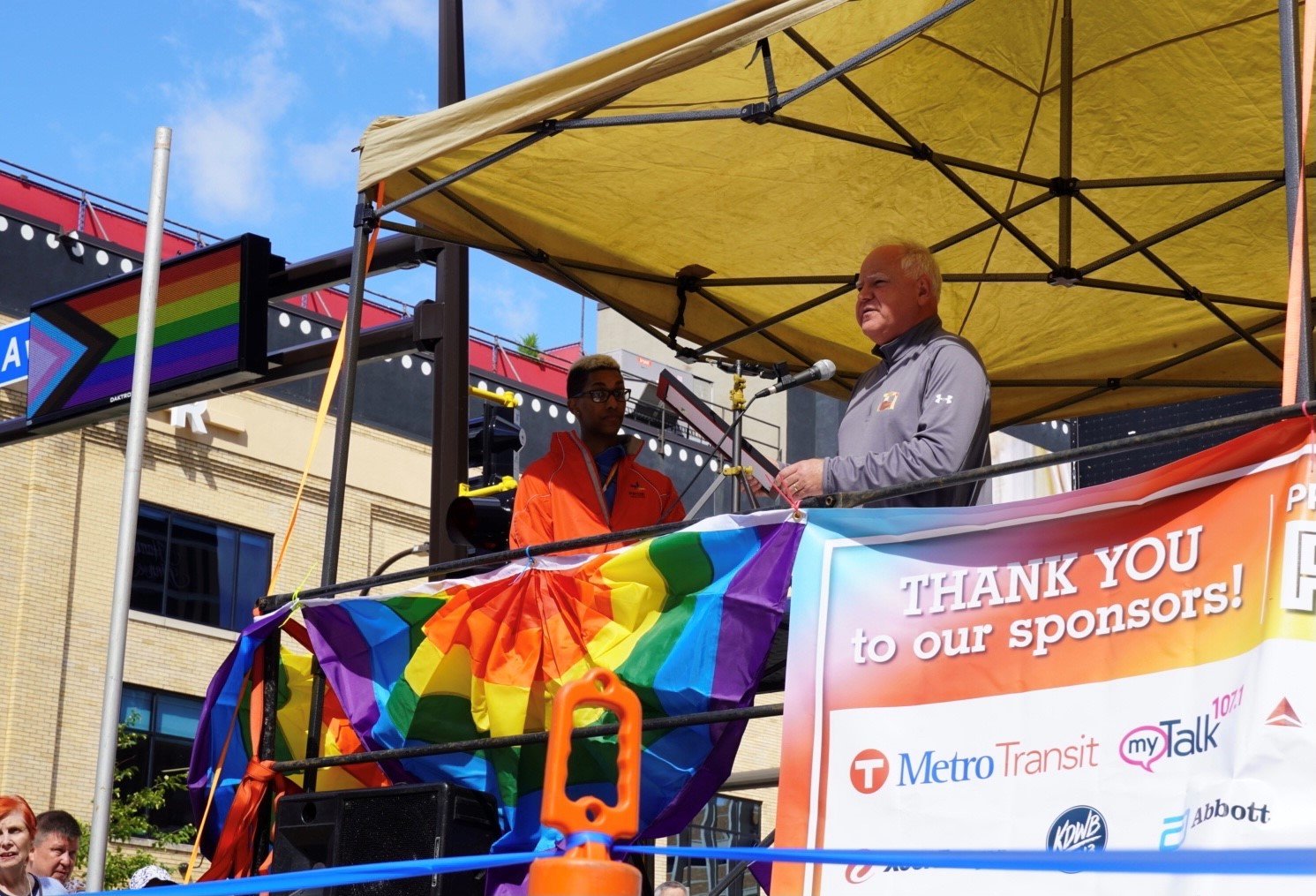
By Erin Reed | St. PAUL, Minn. – On Friday, Minnesota Governor Tim Walz signed into law HF5216, a judiciary, public safety, and corrections supplemental budget bill that includes a ban on the gay and trans panic defense.
The law, which narrowly passed the Senate on a party-line 34-33 vote, prohibits individuals who commit violence against gay or trans people from using their surprise at the victim’s identity as a justifiable reason for their actions. This defense has been used at least 351 times in homicide trials, according to researchers, and has often led to reduced sentences. Now, Minnesota becomes the 19th state to bar such defenses.
The bill states that the use of force against a person in reaction to their sexual orientation or gender identity is prohibited. It also specifies that it is not a defense to any crime that the defendant acted “based on the discovery of, knowledge about, or disclosure of” a victim’s LGBTQ+ status. Such defenses have been used previously to justify violence against transgender people who do not disclose their gender identity to an intimate partner, romantic partner, or even during mere flirtation.
You can see the applicable provisions in the new law here:
The transgender panic defense, according to one study, has been used at least 351 times. W. Carsten Andresen, a professor who has tracked instances where the gay and trans panic defenses have been used, states that the defense has been effective. In 32% of cases, murder charges have been reduced in sentence when the defense is used, and 5% of people who use the defense are acquitted entirely. Andresen notes that this is notable given that these murders often “involve incredible violence.”
The defense has been implicated in high-profile cases. In 2013, James Dixon killed Islan Nettles, a Black transgender woman, in Harlem after his friends mocked him for flirting with her. He informed police that he had “flown into a fury” after discovering her gender identity. Ultimately, he received only 12 years in prison, with activists and family members saying that the sentence was made more lenient due to justifications that implicate the transgender panic defense.
In recent years, there has been a push to outlaw such defenses. New Hampshire and Delaware outlawed the defense in 2023, and New Mexico banned it in 2022. Efforts to outlaw the defense have failed, however, in more conservative states such as Montana, where transgender legislator Rep. Zooey Zephyr’s bill was defeated 11-8, with Republicans voting against the bill while Democrats voted in favor. Similar bills failed in Arizona, Florida, Oklahoma, and Wisconsin this year, with Michigan’s bill pending action but not yet passed.
You can see a map of the legal status of panic defenses here:
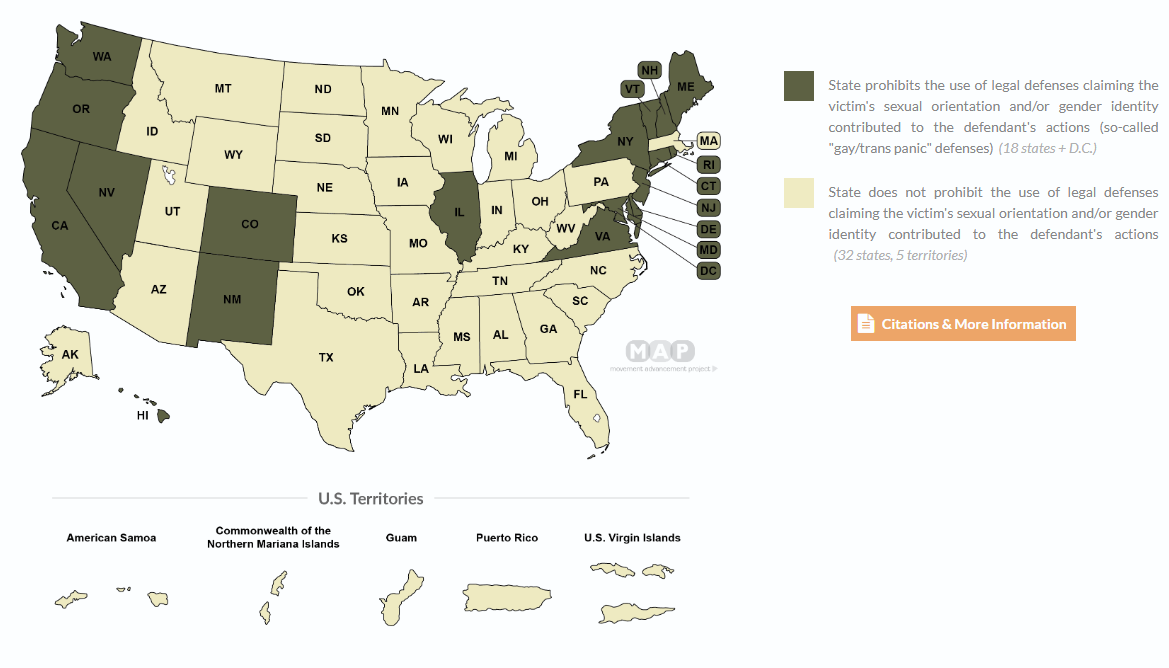
In the Minnesota Senate, the bill passed 34-33 on party lines. “Gay and trans Minnesotans deserve the same protections under the law as all our neighbors receive,” said Demcoratic Senator Westlin after the bill’s passage, adding, “Gay and trans panic defenses are based on irrational fears and prejudice toward LGBTQ+ people, and they imply that violence against LGBTQ+ people is acceptable under certain conditions. I am proud to see our state continue to protect LGBTQ+ Minnesotans, especially when they are victims of violent crime.”
The new law will go into effect August 1st, 2024.
******************************************************************************************

Erin Reed is a transgender woman (she/her pronouns) and researcher who tracks anti-LGBTQ+ legislation around the world and helps people become better advocates for their queer family, friends, colleagues, and community. Reed also is a social media consultant and public speaker.
******************************************************************************************
The preceding article was first published at Erin In The Morning and is republished with permission.
Minnesota
Minnesota lawmakers restore anti-trans religious exemption
Exemption allows religious groups to discriminate based on gender identity. DFL changes course on issue that prompted heated, angry debates
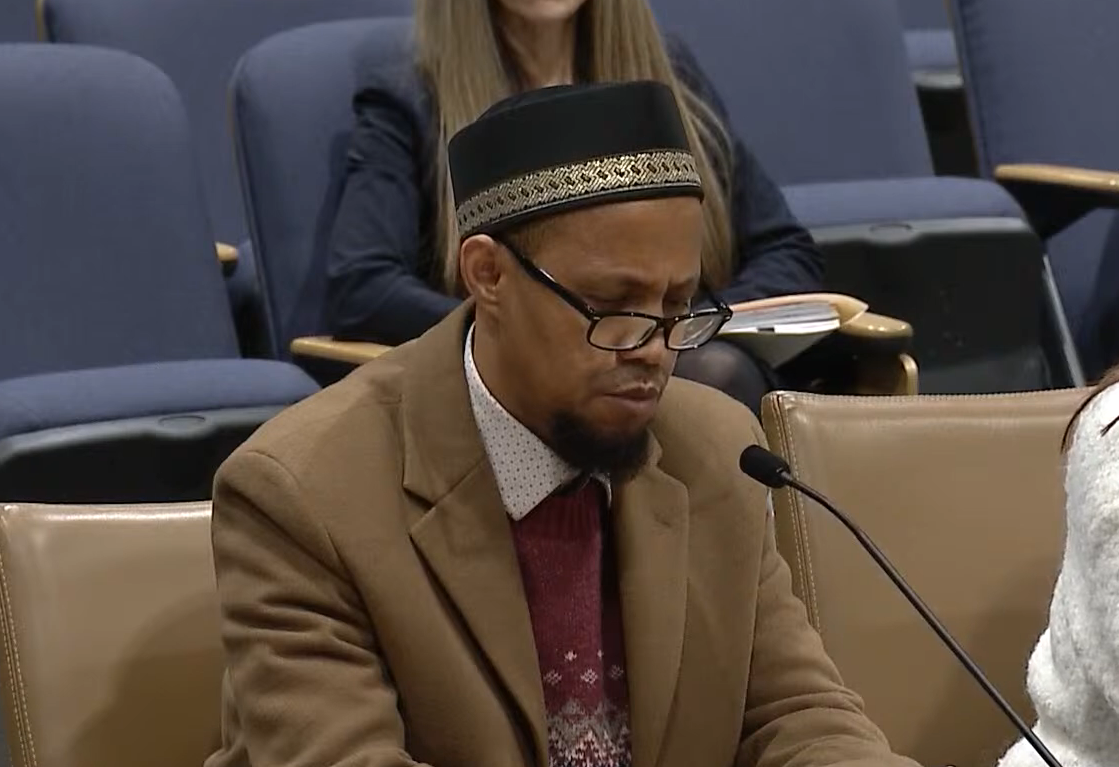
By Deena Winter | ST. PAUL, Minn. – The Minnesota Legislature voted Tuesday to restore an exemption in state law protecting religious organizations and schools against claims of gender identity-based discrimination.
Last year, lawmakers modernized definitions in the Minnesota Human Rights Act prohibiting discrimination based on sexual orientation. But no corresponding religious exemption was added for gender identity, so current law allows a church to discriminate against a gay applicant but not a trans applicant.
Some Republican lawmakers assumed it was an oversight, and introduced bills and amendments restoring the exemption, but earlier in the session, the majority Democratic-Farmer-Labor Party largely ignored their pleas, leading to passionate, angry debates in committee hearings.
Numerous religious groups pushed for what they said was religious freedom protected by the state and federal constitutions, arguing they should be able to employ people who adhere to their religious beliefs without the threat of civil rights litigation.
Republicans mobilized, calling it an “unprecedented attack” on religious autonomy.
But Tuesday, the Senate unanimously approved a bill (HF4021/SF4292) reinstating the religious exemption.
True North Legal, which represents religious groups, had already threatened litigation, noting the U.S. Supreme Court ruled in 2020 that the government cannot control religious schools’ hiring decisions.
Sen. Warren Limmer, R-Maple Grove, released a statement saying the vote was the result of weeks of negotiations.
“Passing this amendment and the bill today secures in law the right we all have under the Constitution,” Limmer said.
The House followed suit later Tuesday, and now the bill heads to Gov. Tim Walz’s desk.
It was a stunning turnabout from the DFL reaction earlier this session.
When Rep. Harry Niska, R-Ramsey, suggested in a late February committee hearing that the DFL inadvertently forgot to include the religious exemption last session, committee chair Rep. Jamie Becker-Finn, DFL-Roseville, corrected him, saying, “It was not an oversight.”
Rep. Brion Curran, DFL-White Bear Lake, was visibly upset by religious leaders’ testimony in support of the exemption, calling it “disgusting,” “infuriating,” “disrespectful” and a direct attack on trans and non-binary people.
“I am appalled that we are having this discussion,” Curran said. “Where’s the dignity in not recognizing our fellow neighbors?”
Minnesota’s first out trans lawmaker, Rep. Leigh Finke, DFL-St. Paul, said during the hearing that the state took big steps toward protecting people’s rights last year — opening its doors as a refuge for transgender people — and said lawmakers weren’t about to allow discrimination against the LGBTQ community.
Niska released a statement saying it’s not the language he originally proposed, but achieves his goal of retaining a broad statutory exemption for both sexual orientation and gender.
“Both sides had to be flexible in working to resolve this issue and I think the finished product respects all Minnesotans,” Niska said. “It protects institutional autonomy and the rights of association for people of faith.”
******************************************************************************************

Deena Winter has covered local and state government in four states over the past three decades, with stints at the Bismarck Tribune in North Dakota, as a correspondent for the Denver Post, city hall reporter in Lincoln, Nebraska, and regional editor for Southwest News in the western Minneapolis suburbs.
******************************************************************************************
The preceding article was previously published by the Minnesota Reformer and is republished with permission.
The Minnesota Reformer is an independent, nonprofit news organization dedicated to keeping Minnesotans informed and unearthing stories other outlets can’t or won’t tell. We’re in the halls of government tracking what elected officials are up to — and monitoring the powerful forces trying to influence them. But we’re also on the streets, at the bars and parks, on farms and in warehouses, telling you stories of the people being affected by the actions of government and big business. And we’re free. No ads. No paywall.
We’re part of States Newsroom, the nation’s largest state-focused nonprofit news organization.
Minnesota
Family & lawmakers mourn trans woman killed in transphobic crime
Amber Muhm, who knew Williams through a peer support group for transgender people, said Minnesota should decriminalize sex work
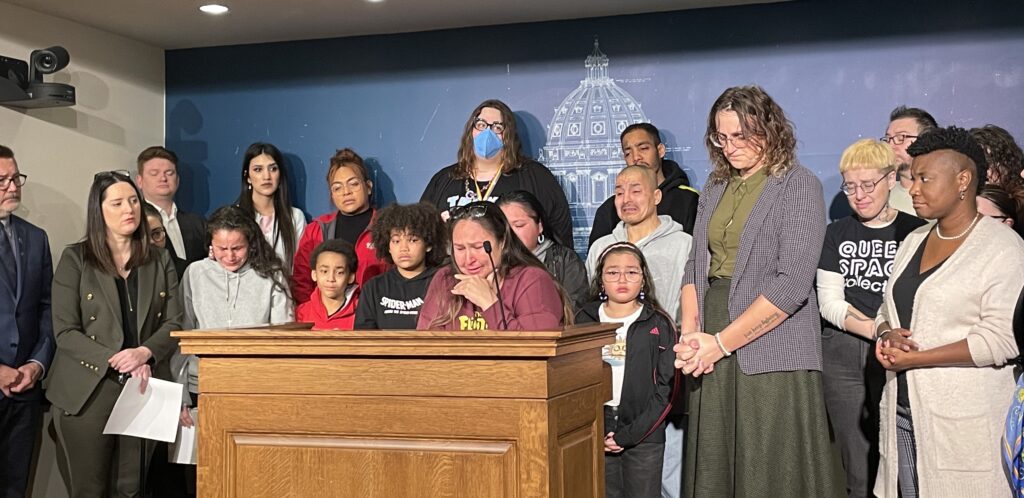
By Madison McVan | SAINT PAUL, Minn. – Family members and friends of Savannah Ryan Williams, a transgender woman killed in Minneapolis on Nov. 29, gathered with lawmakers at the state Capitol Thursday to remember Williams and call attention to transphobia.
A 25-year-old man, Damarean Bible, has been arrested and charged with second-degree murder. Bible told police he shot Williams in the head after the two had sex in a courtyard in the Central neighborhood of Minneapolis, according to the charging documents.
Williams’ siblings said Thursday they don’t want their sister to be remembered for her tumultuous life, but instead for her outgoing personality and generosity.
Williams was a beloved sister; one of her brothers was homeless, and anytime Williams ran into him, she’d “give him the shoes off her feet and go barefoot,” Williams’ sister Gabrielle Stillday said.
“She was a very kind, loving person,” she said. “My kids and my nieces … that was their favorite auntie because she always was good to them.”
Williams’ killing was the second highly publicized attack on a trans woman in Minneapolis this year; in February, three people robbed and assaulted a trans woman at a Lake Street light rail station.
Transgender people are more than twice as likely as cisgender people to be the victim of a violent crime. Of the 41 transgender and gender-nonconforming people whose killings were documented by the Human Rights Campaign in 2022, more than half were trans women of color. Williams was Indigenous and Cuban, according to her family.
“In a national landscape where our place in public life is being actively challenged, where hateful rhetoric and the threats of violence continue to escalate, we must speak up,” said Kat Rohn, executive director of OutFront Minnesota, an advocacy group for LQBTQ Minnesotans.
Advocates at the press conference Thursday said affordable housing and workplace discrimination are issues faced by Minnesota transgender people.
Williams, who would have turned 39 this month, struggled to find housing and employment because she was transgender, her youngest sister Kelly Stillday said.
Amber Muhm, who knew Williams through a peer support group for transgender people, said Minnesota should decriminalize sex work and ban the so-called trans panic defense.
The trans or LGBTQ panic defense is a legal strategy in which a person charged with a violent crime argues that their victim’s gender identity or sexual orientation provoked the attacker or forced the attacker to act in self-defense. At least 18 states have banned the use of the LGBTQ panic defense, but Minnesota is not among them.
Across the country, trans people have also faced a wave of hostility from right-wing political activists and legislators. Republican-controlled state legislatures have passed laws limiting access to gender-affirming care, requiring trans people to compete in sports categories aligning with their biological sex, criminalizing drag performances and more. The number of anti-trans bills introduced in state legislatures has grown exponentially in recent years, according to the Trans Legislation Tracker.
The DFL-controlled Minnesota Legislature joined other Democratic-controlled states in taking the opposite approach, passing a “trans refuge” bill spearheaded by Rep. Leigh Finke, DFL-St. Paul, the first transgender member of the Minnesota House. The law protects people from other states from being arrested for giving or receiving gender-affirming care, even if another state has made the care illegal.
But Thursday’s press conference by lawmakers and Williams’ family was also a stark reminder of the limits of public policy.
“We will do everything we can to protect our family, but laws are not enough. In these conditions, policy cannot save us,” Finke said. “Our communities will not be safe until every one of our neighbors sees our humanity, celebrates our individuality and embraces this beautiful community that loves and is worthy of love.”
Her family and friends said no matter her personal circumstances, Williams always found a way to bring gifts for her siblings, nieces and nephews.
“She always reminded me that she was my big sister, and big sisters take care of little sisters,” Gabrielle Stillday said.
******************************************************************************************

Madison McVan is a Report for America corps member who covers economic mobility for Minnesota Reformer. She previously covered agriculture for Investigate Midwest after graduating from the University of Missouri in 2020 with degrees in Journalism and Latin American studies.
The preceding article was previously published by the Minnesota Reformer and is republished with permission.
The Minnesota Reformer is an independent, nonprofit news organization dedicated to keeping Minnesotans informed and unearthing stories other outlets can’t or won’t tell. We’re in the halls of government tracking what elected officials are up to — and monitoring the powerful forces trying to influence them. But we’re also on the streets, at the bars and parks, on farms and in warehouses, telling you stories of the people being affected by the actions of government and big business. And we’re free. No ads. No paywall.
Minnesota
Minnesota repeals sodomy, fornication, & adultery laws
Legislature also expands hate crime and hate speech laws and removes laws allowing anti-LGBT discrimination
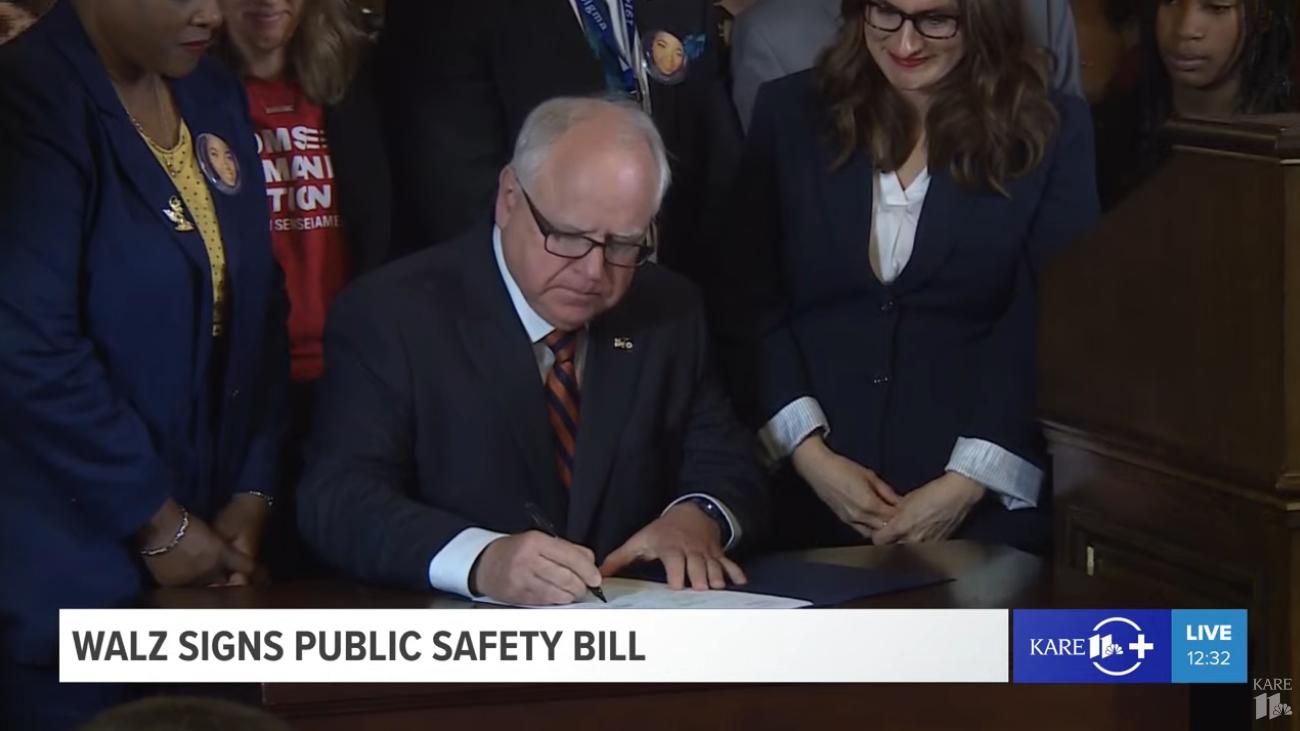
By Rob Salerno | SAINT PAUL, Minn. – Minnesota Governor Tim Walz signed an omnibus public safety bill into law Friday, May 19, which repeals several anti-LGBT sections from the state code, including a ban on sodomy that had been struck down as unconstitutional.
The long-awaited reform bill, SF 2909, also deletes outdated crimes related to abortion, fornication, and adultery from the state code.
The sweeping law reform bill also includes a provision defining “gender identity” as separate from “sexual orientation” and “sex” for the first time in state law, and amendments to existing nondiscrimination and hate crime laws to expand their scope and explicitly include protections based on “sex, gender, gender identity, and gender expression.”
Along with the reforms to discrimination law, the bill deletes old provisions that allowed non-profits that work with children to discriminate against LGBT people and allowed landlords to discriminate against LGBT people in a building with fewer than two units. Landlords are still allowed to discriminate against LGBT people if renting a room within their own house.
Legislators also struck a clause from the state code that insisted that the state’s anti-discrimination law did not mean the state condones homosexuality or allows same-sex marriage.
Many Democrats across the country had rushed to delete obsolete laws that target LGBT people from state and federal codes after last year’s Supreme Court ruling striking down the right to abortion included an opinion from Clarence Thomas suggesting that the court should review its decisions that declared bans on same-sex marriage and sodomy to be unconstitutional.
Many speculated that anti-LGBT activists, legislators, and attorneys-general could bring strategic lawsuits to get the Supreme Court to reverse those judgements, which would bring any same-sex marriage bans or sodomy laws that haven’t been repealed back into effect.
Minnesota’s sodomy law would not have been reactivated by a SCOTUS decision, because it was struck down by the state’s Supreme Court finding in 2001 that it violated the state constitution’s right to privacy.
Earlier this week, the Minnesota State House gave approval to a state constitutional amendment that would ensure equality under the law, including banning discrimination based on “race, color, creed, sex, sexual orientation, gender identity or expression, age, disability, ancestry, or national origin.” It awaits a hearing from the State Senate, and if it passes, it will be put to voters in November 2024.
Three other states that still have sodomy laws on the books have Democrats in control of state legislature and governor’s office. Maryland’s General Assembly passed a bill repealing the last vestiges of its sodomy law last month, and Governor Wes Moore announced it would take effect without his signature on Friday. Bills to repeal sodomy laws have also been introduced in Massachusetts and Michigan and are pending legislative action.
A bill to repeal Texas’ sodomy law was introduced into the State House and was sponsored by a majority of the representatives, including several Republicans, but died when it was not brought for a vote before the deadline.
Sodomy laws also remain on the books in nine other states: North Carolina, South Carolina, Georgia, Florida, Mississippi, Oklahoma, Louisiana, Kansas, and Kentucky.
Last year, Congress passed the Respect for Marriage Act to protect recognition of same-sex marriages.
Minnesota
Minnesota Senate passes bill banning conversion “therapy”
“If anyone doubts that we can take meaningful action to protect our kids, I’ve got two words for you: Watch us.” ~ Gov. Tim Walz

SAINT PAUL – Minnesota Governor Tim Walz took to Twitter Friday to applaud passage of SF 23 in the state Senate, a bill which would prohibit licensed medical professionals from subjecting LGBTQ youth to the dangerous and discredited practice of so-called “conversion therapy.”
The Minnesota Senate just passed a bill permanently banning the inhumane practice of so-called conversion “therapy”.
— Governor Tim Walz (@GovTimWalz) April 21, 2023
As I said in my State of the State address, if anyone doubts that we can take meaningful action to protect our kids, I’ve got two words for you: Watch us. https://t.co/eAZguaOMjn
Governor Walz has indicated he will sign the measure once it hits his desk. With the forthcoming signage of the bill, Minnesota will become the 21st state in the nation with statewide legislative protections against conversion “therapy.”
“In the wake of the record levels of anti-LGBTQ bills across the country, it brings so much hope to mark the historic passage of this legislation in Minnesota. This bipartisan bill — which will help protect LGBTQ youth across the state from the dangers and harms of so-called conversion ‘therapy’ — sends a powerful message of affirmation and support to every young LGBTQ Minnesotan growing up in The North Star State,” said Troy Stevenson, Director of State Advocacy Campaigns for The Trevor Project. “As this bill makes its way to the Governor’s desk, we urge other states to join alongside Minnesota’s example and pass conversion therapy bans to help ensure every single LGBTQ young person in our country is protected, no matter where they live.”
According to The Trevor Project’s 2022 U.S. National Survey on LGBTQ Youth Mental Health by State, 43% of LGBTQ youth in Minnesota seriously considered suicide in the past year, including 52% of transgender and nonbinary youth. Additionally, 15% of LGBTQ youth in Minnesota reported being threatened with or subjected to conversion therapy.
Further, a peer-reviewed study by The Trevor Project published in the American Journal of Public Health found that LGBTQ youth who underwent conversion therapy were more than twice as likely to report having attempted suicide and more than 2.5 times as likely to report multiple suicide attempts in the past year.
A peer-reviewed study published in JAMA Pediatrics found the practice of conversion therapy on LGBTQ youth, and its associated harms – such as substance abuse and negative mental health outcomes, including depression, anxiety, and suicide attempts – cost the U.S. an estimated $9.23 billion, annually.
Minnesota
20 year old who praised Club Q shooter arrested for illegal guns
The source who had been messaging Smith on social media shared an exchange in which Smith called the Club Q shooter “a hero”
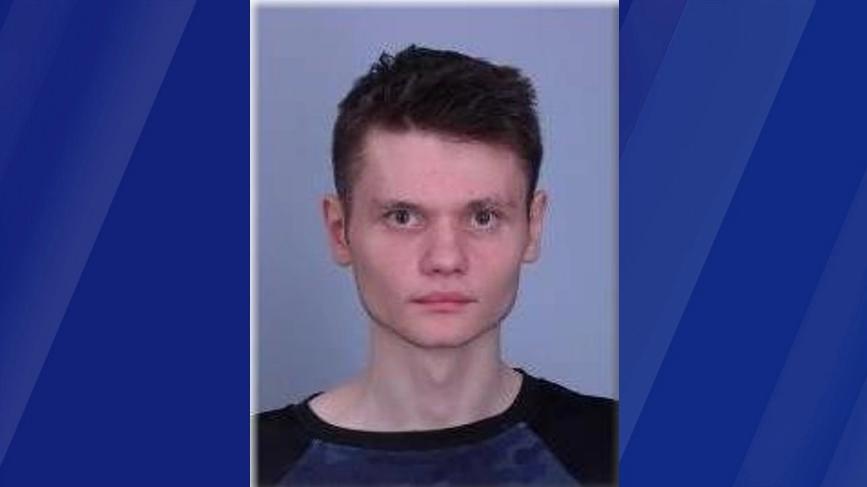
MINNEAPOLIS – A federal criminal complaint for possession of a machine gun and for attempting to receive and possess unregistered destructive devices, specifically hand grenades was made against Savage, Minnesota resident River William Smith.
The 20-year-old Smith was arrested by agents from the Twin Cities Field Office of the Federal Bureau of Investigation on December 14, 2022. In a press release, U.S. Attorney Andrew M. Luger announced that according to court documents and a law enforcement affidavit, on September 27, 2022, the FBI received a tip from a concerned citizen reporting disturbing behavior of a 20-year-old man, later identified as River William Smith.
The FBI Joint Terrorism Task Force investigation revealed evidence that Smith was preparing for a violent exchange with police. Smith stated he is “pro mass shooting,” sympathized with the Parkland school shooter, and expressed admiration for the individual charged with the recent shooting at a Colorado Springs LGBTQ nightclub.
The FBI also discovered Smith had access to fully automatic rifles, handguns, suppressors, body armor and a Kevlar helmet. Smith stated that he was preparing to fight the police and was dedicated to dying in that fight.
Smith asked a government informant for grenades and an illegal part to convert his AR-15 style rifle into a fully automatic machine gun. On December 14, 2022, under supervision of law enforcement, a meeting between Smith and a government informant was arranged. At the meeting, Smith purchased three hand grenades and four auto sears. [An auto sear is a small device made of metal or plastic that can make any handgun a fully automatic weapon.]
Smith was then arrested by the agents observing the meeting.
Saint Paul, Minnesota, ABC News affiliate KSTP-TV 5 reported:
The informant [who had seen him at a local gun range] asked Smith about his “aggressive shooting style,” pointing out his body armor and rapid shooting drills, to which Smith responded that he is preparing for a fight with police and was “dedicated to dying” in the confrontation, the complaint states.
Smith also told the informant he didn’t want his gun taken away again, a likely reference to a 2019 incident in which Smith, then 17, fired an AK-47-style rifle in his grandparents’ home, wounding his grandmother. In a follow-up search warrant, police confiscated the AK-47-style rifle, along with a .22 caliber rifle, a shotgun and 15 fully loaded 7.62 mm magazines.
Smith told the informant his grandmother buys him all of his guns and ammunition since he’s too young to get them himself. He later asked the informant to order him auto sears — attachments that convert guns into fully automatic weapons — for his AR-style rifle and Glock pistol.
The criminal complaint also states that Smith told the informant he had thought about joining a neo-Nazi terrorist group called “The Base.” According to the Southern Poverty Law Center, “The Base believes society should be pushed to collapse so a white ethnostate can arise out of the ruins.”
The source who had been messaging Smith on social media shared an exchange in which Smith called the Club Q shooter “a hero.” Smith went on to say he’s “pro mass shooting in general” and sympathizes with the Parkland, Florida, school shooter as well.
Smith is charged with one count of possession of a machine gun and one count of attempt to receive and possess destructive devices. He appeared today in U.S. District Court before Magistrate Judge David T. Schultz. Smith was ordered to remain in detention pending further proceedings.
Minnesota
Minneapolis felon charged in Gay Bar brandishing incident
According to U.S. Attorney Andrew M. Luger, Conell Walter Harris, 29 has been charged with felony illegal possession of a firearm
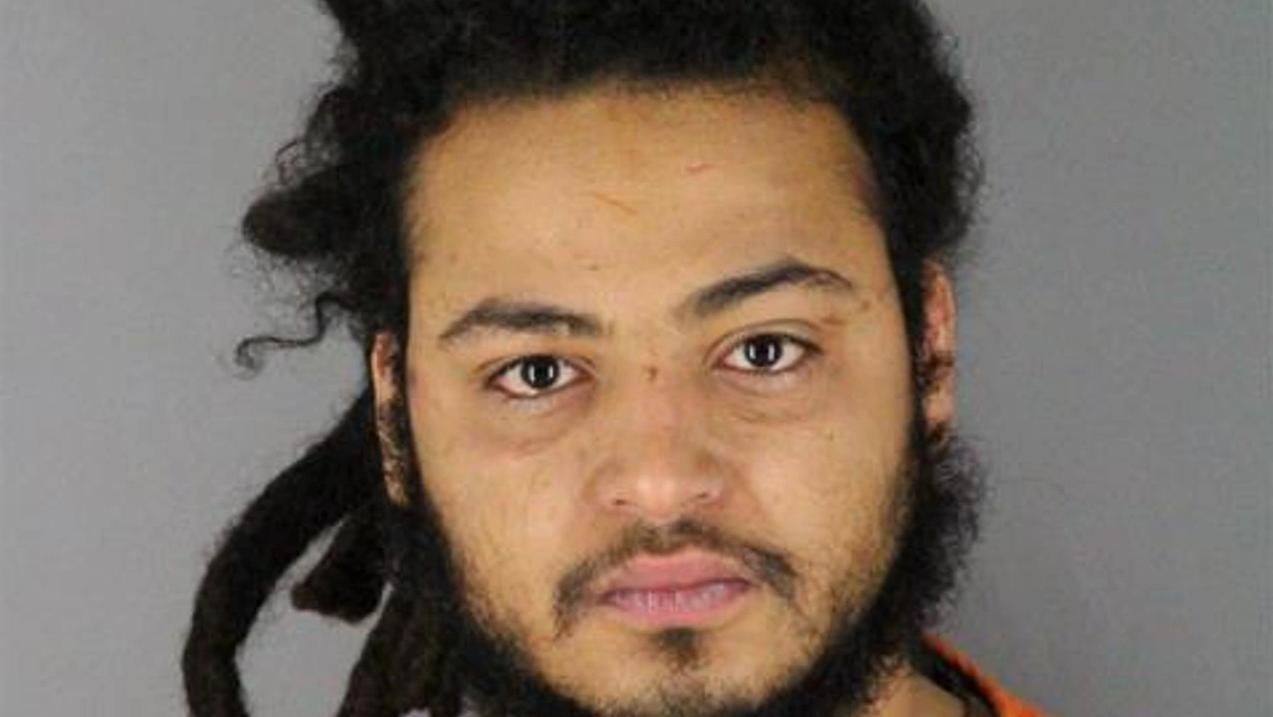
MINNEAPOLIS – A Minneapolis resident is facing federal charges for illegal possession of a firearm during a criminal brandishing, uttering threats and homophobic slurs at a popular LGBTQ+ bar in the downtown area of the city.
According to U.S. Attorney Andrew M. Luger, Conell Walter Harris, 29 has been charged with felony illegal possession of a firearm.
In court documents filed in Hennepin County, on November 28, 2022, Minneapolis Police officers responded to a call that a person at 19 Bar, located near downtown Minneapolis, had pulled out a gun after being asked to leave.
When officers arrived, several people pointed at a man, who was later identified as Conell Walter Harris, 29. Harris resisted arrest and tried to reach into the pocket of his hooded sweatshirt. Officers recovered a stolen .45 caliber Glock model 30 pistol from Harris’ pocket. Officers spoke to bar employees and customers and learned that Harris had become upset after an employee asked to see his identification, which Harris refused to show.
The employee then asked Harris to leave the bar. Harris became combative and pulled out a pistol. An employee attempted to deescalate the situation but Harris became more aggressive and made multiple threatening statements. Harris then left for a short time but returned to the bar before law enforcement arrived.
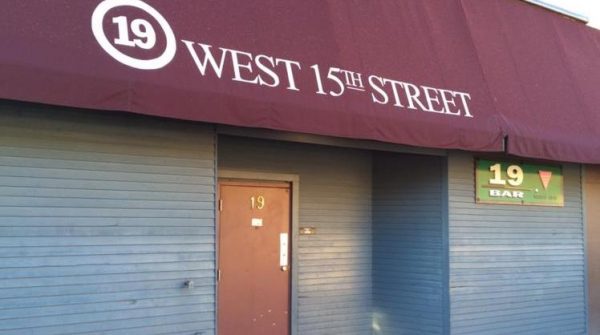
Minneapolis NBC affiliate KARE 11 reported:
The complaint and affidavit outline the events that allegedly took place at Minneapolis’ 19 Bar the night of Nov. 28, claiming officers first responded to the bar around 11 p.m. on reports of a person with a gun.
When officers arrived, prosecutors say, bar patrons identified Harris. The complaint says Harris “resisted arrest and kept reaching into his hoodie pocket,” leading police to recover a .45-caliber Glock semi-automatic handgun.
Court documents allege that based on eyewitness accounts, police were informed that Harris was “acting strangely” when he entered the bar and became upset when an employee asked to see his ID. A 19 Bar bartender then asked Harris to leave, according to the complaint, and Harris refused, telling the bartender, “I ain’t going nowhere,” while pulling out the firearm.
Prosecutors say Harris then began yelling profanities and slurs at the bartender before leaving for a short time and then returning.
When Harris later reentered the bar, court documents allege he began playing pool until officers arrived.
According to a press release from the U.S. Attorney’s Office, Harris is charged in a criminal complaint with felon in possession of a firearm. He made his initial appearance today in U.S. District Court before Magistrate Judge Tony N. Leung. Harris was ordered to remain in custody pending a formal detention hearing scheduled for December 5, 2022.
This case is the result of an investigation conducted by the Bureau of Alcohol, Tobacco, Firearms, and Explosives and the Minneapolis Police Department.
Minnesota
‘Nonpartisan’ Minnesota group launches ‘parental rights’ effort
The group rallied in front of the Minnesota state capitol caring signs with crossed out images of Pride flags and “CRT”
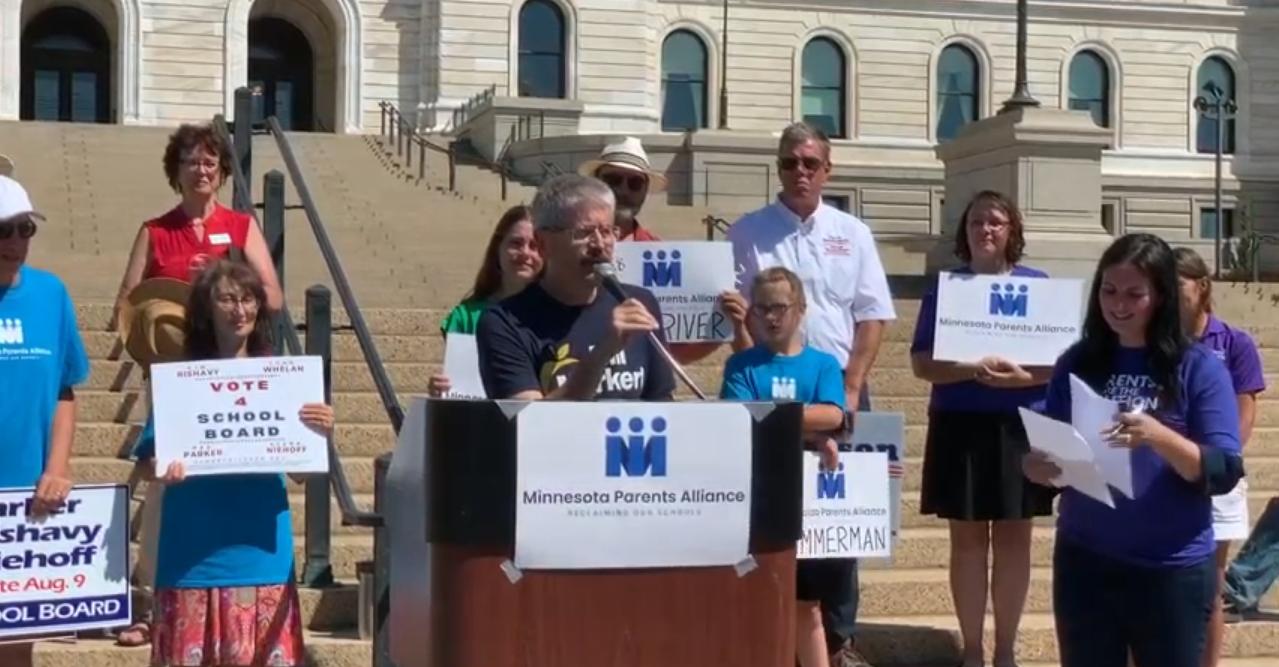
MINNEAPOLIS – A new group in Minnesota, the Minnesota Parents Alliance, claiming to be nonpartisan has launched an effort to gain “parental rights” on state school boards, partnering with anti-LGBTQ organizations and endorsing candidates who denounce Pride flags and critical race theory.
The group, which was launched in February, says it’s a “statewide, non-partisan, parent-focused organization” that vows to ensure “every parent who wants to get involved in their child’s education has every resource they need to do so successfully.” According to the group’s website, its goal is to “[educate] and [empower] Minnesota parents to effectively engage in their school community as strong advocates for academic achievement, equality, and parental rights.”
“The parent movement is alive and well in Minnesota,” the Minnesota Parents Alliance tweeted ahead of its launch in February. “We’ve got work to do in ’22.”
However, the Minnesota Parents Alliance lists several Conservative groups under its “helpful organizations” tab, including the Child Protection League – which the Southern Poverty Law Center lists as an anti-LGBTQ hate group. The Child Protection League generated extensive media coverage earlier this year after the Becker School District Board signed off on a plan to allow the organization to present the “other side” of the LGBTQ rights debate.
In August, according to MPR News, supporters of the group rallied in front of the Minnesota state capitol, some caring signs with crossed out images of Pride flags and “CRT” – referring to critical race theory, a graduate-level academic academic framework centering on the idea of systemic racism in the nation’s institutions. Critical race theory has become a buzzword in Conservative circles, encompassing any teaching of race and American history in schools.
Once a political after-thought, school boards in recent years have become a battleground over critical race theory, transgender inclusion and LGBTQ-themed books considered to be “inappropriate,” or even “pornographic.”
The organization has backed over 100 candidates for Minnesota school board in its “voter guide,” which states that the group “identifies and endorses school board candidates across the state who are aligned with our mission of prioritizing academic achievement, equality and parental rights in their school district.”
The Los Angeles Blade reviewed the list of candidates, finding a lack of racial diversity. According to headshots on the group’s website – though several candidates are without identifying photos – the group has largely backed white candidates. Over one-fifth of the state’s population is represented by racial or ethnic minority groups, according to the latest U.S. Census data.
The Minnesota Parents Alliance has not responded to multiple interview requests from the Blade.
At the Aug. 4 rally, the group’s founder, Cristine Trooien, said her organization has been contacted by Democratic voters wanting to partner with the group. “[They say], ‘I am a left-leaning voter, I have always voted for Democratic candidates and what is going on in our schools right now is just unacceptable,’” she said, per MPR News.
“I think we saw last year a lot of inflammatory things happening at school board meetings and that’s not getting us anywhere,” Trooien said. “Dedicated school board members? That’s going to get us somewhere.”
-

 Theater5 days ago
Theater5 days ago‘Incitation to the Dance’ asks what happens to love when a younger man cuts in
-

 New York4 days ago
New York4 days agoPride flag removed from Stonewall Monument as Trump targets LGBTQ landmarks
-

 Philippines4 days ago
Philippines4 days agoPhilippines Supreme Court rules same-sex couples can co-own property
-

 Los Angeles4 days ago
Los Angeles4 days agoStonewall Young Democrats bounces back from “quiet year” with Hero Awards
-

 Florida4 days ago
Florida4 days agoDisney’s Gay Days ‘has not been canceled’ despite political challenges
-

 a&e features1 day ago
a&e features1 day agoFrom ‘So Random’ to sexy theater: LA’s very own Mathew Scott Montgomery
-

 Los Angeles1 day ago
Los Angeles1 day agoA new “queer summer camp” cycling event rises from the legacy of AIDS/LifeCycle
-

 Transgender2 days ago
Transgender2 days agoTrans-led organization FLUX celebrates a decade of “transformative” service to TGI communities
-

 Commentary2 days ago
Commentary2 days agoWhat Grindr’s pricey new subscription says about the gays, intimacy, and capitalism in the age of AI







